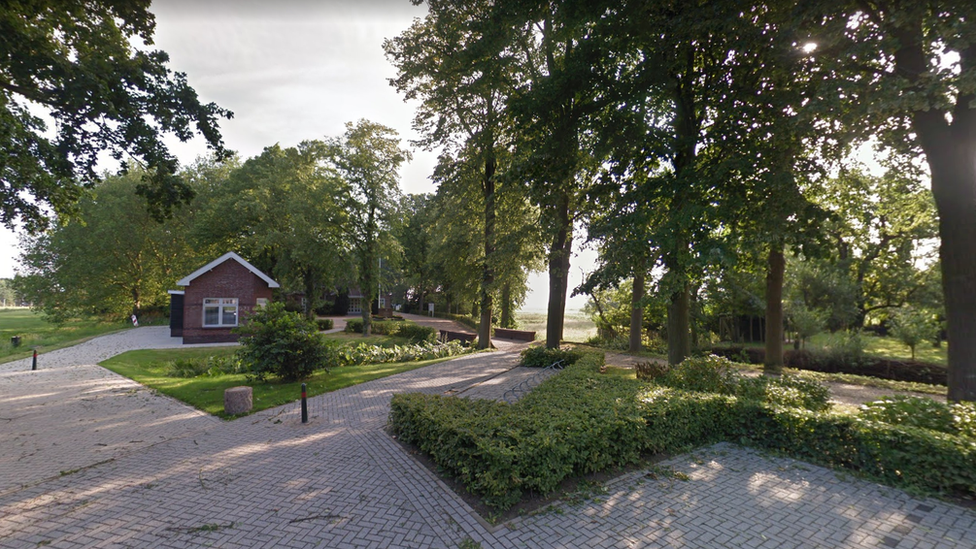Dutch town Bodegraven-Reeuwijk loses Twitter paedophilia rumour case
- Published

The rumours have drawn dozens of unwelcome visitors to Bodegraven's cemetery
A Dutch town has lost a court case seeking action by Twitter to stop the spread of a conspiracy theory saying it once hosted a satanic paedophile ring.
The unfounded reports that Bodegraven-Reeuwijk was the site of the crimes in the 1980s first circulated in 2020.
Local authorities had wanted all posts relating to the alleged events removed by the social media site.
But a Dutch judge said Twitter had done enough to remove unlawful content about the story.
One of three men behind the rumours said he had been the victim of abuse and witnessed murders as a child.
The stories have subsequently made the town, of around 35,000 people, the focus for conspiracy theorists who visit the local graveyard to lay flowers and write messages at the graves of dead children.
Local officials have said these visits cause "great unrest and anger" among residents, especially the parents of children buried at the cemetery.
In giving its judgement, The Hague district court said it would not order Twitter to remove other tweets relating to the stories from other accounts, but did tell the company to respond immediately to specific removal requests from the town.
Twitter had argued it was impossible to create a good filter to find Bodegraven stories that would not affect legal content.
The three men accused of instigating the Bodegraven story are currently in jail after being convicted in other court cases for incitement and making death threats to people including Dutch Prime Minister Mark Rutte and former health minister Hugo de Jonge.
Related topics
- Published17 September 2022
- Published25 April 2022
- Published23 July 2022